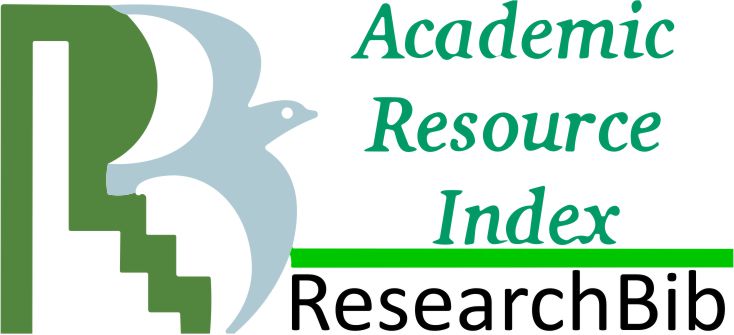DOI
10.21002/jaki.2019.09
Abstract
This study aims to empirically examine the influence of subjective norms, behavioral control, and intention on the attitude of internal auditors to report fraud with ethical leadership as a moderating variable. This study used a scenario-based survey of internal auditors working in state-owned and mid-level private companies. The sample was chosen by the non-random method because the sample was taken from the participants of the SNIA (National Internal Auditor Symposium) and in total, 117 respondents were gathered as valid samples. Data were analyzed using Warp PLS 4.0. This study proves that subjective norms and behavioral control have a positive effect on the attitude of internal auditors to report fraud, while intention has a negative influence on the attitude. Ethical leadership strengthens the positive influence of subjective norms and behavioral control on the attitude of the internal auditors. It also reinforces the negative influence of intention on the internal auditors’ attitude. This research supports a model of integration between Theory of Planned Behavior and Social Cognitive Theory, which states that the environment, in this case ethical leadership, influences the internal auditor's cognition in making ethical decisions. However, this study cannot prove that ethical leadership can reduce the negative influence of intention on the attitude of internal auditors to report fraud.
References
Abdolmohammadi, M. J. 2012. Chief Audit Executives’ Assessment of Internal Auditors’ Performance Attributes by Professional Rank and Cultural Cluster. Behavioral Research in Accounting 24(1),1–23. Anggraini, F.R.R. and F.A.J. Siswanto. 2016. The Role of Perceived Behavioral Control and Subjective Norms to Internal Auditors’ Intention in Conveying Unethical Behavior : A Case Study in Indonesia. Review of Integrative Business and Economics Research. 5(2), 141–50. Arel, B., M. M. Jennings, K. Pany, and Philip Mj. 2012. Auditor Liability : A Comparison of Judge and Juror Verdicts. Journal of Accounting and Public Policy 31(5), 516–32. Bapepam LK. 2008. Peraturan Ketua Badan Pengawas Pasar Modal dan Lembaga Keuangan Nomor IX.I.7 dan Keputusan Ketua Bapepam LK Nomor Kep-496/BL/2008 Tentang Pembentukan dan Pedoman Penyusunan Piagam Unit Audit Internal. Barua, A., D.V. Rama, and V. Sharma. 2010. Audit Committee Characteristics and Investment in Internal Auditing. Journal of Accounting and Public Policy 29(5), 503–13. Basuki, H., F.R.R. Anggraini, and Y. Nurim. 2010. The Effect of Culture in Family Firms’ Earnings Quality: An Examination Alignment versus Entrenchment Approach in Agency Theory. Jurnal Akuntansi & Governance Andalas, Vol. 1, Nomor 1, 1-22. Bhal, K., and A. Dadhich. 2011. Impact of Ethical Leadership and Leader-Member Exchange on Whistle Blowing: The Moderating Impact of the Moral Intensity of the Issue. Journal of Business Ethics, Vol. 103: 485-496 Buchan, H. F. 2005. Ethical Decision Making in the Public Accounting Profession: An Extension of Ajzen's Theory of Planned Behavior. Journal of Business Ethics, 61(2), 165-181. Burton, J. P., J. M. Hoobler, and M. L.Scheuer. 2012. Supervisor workplace stress and abusive supervision: The buffering effect of exercise. Journal of Business and Psychology, 27(3), 271–279. Carpenter, T.D., J. L. Reimers, and P. Z. Fretwell. 2011. Benefits of Brainstorming in Groups. Auditing: A Journal of Practice & Theory 30(3), 211–24. Darjoko, F. J. and E. Nahartyo. 2017. Keputusan Investigasi Auditor Internal Atas Tuduhan. Jurnal Akuntansi dan Keuangan Indonesia 14(2), 202-207. Demirtas, O., and A. A. Akdogan. 2015. The Effect of Ethical Leadership Behavior on Ethical Climate, Turnover Intention, and Affective Commitment. Journal of Business Ethics, 130(1), 59-67. Demirtas, Ozgur, Sean T. Hannah, Kubilay Gok, Aykut Arslan, and Nejat Capar. 2017. “The Moderated Influence of Ethical Leadership, Via Meaningful Work, on Followers’ Engagement, Organizational Identification, and Envy.” Journal of Business Ethics 145(1):183–99. DeZoort, F. T. and P.D. Harrison. 2018. Understanding Auditors’ Sense of Responsibility for Detecting Fraud within Organizations. Journal of Business Ethics 149(4), 1–18. Enderle, G. 1987. Some Perspective of Managerial Ethical Leadership. Journal of Business Ethics, 6(8): 657-663. Gozhali, I dan H. Latan. 2014. Partial Least Squares: Konsep, Metode, dan Aplikasi Menggunakan Program WarpPLS 4.0. Badan Penerbit Universitas Diponegoro Semarang Gramling, A. A., M. J. Maletta, , A. Schneider, & B. K. Church 2004. The Role of Tile Internal Audit Function in Corporate Governance: A Synthesis of the Extant Internal Auditing Literature and Directions for Future Research. Journal of Accounting Literature, 23: 194-244. Klein, P., D. Shapiro, and J. Young. 2005. Corporate Governance, Family Ownership and Firm Value: the Canadian Evidence. Corporate Governance: An International Review, Nov, Vol. 13 (6), 769-784. Lin, S., M. Pizzini, M. Vargus, and I. R. Bardhan. 2011. The role of the internal audit function in the disclosure of material weaknesses. The Accounting Review 86 (1), 287–323. Mayer, D.M., K. Aquino, R. L. Greenbaum, and M. Kuenzi. 2012. Who Displays Ethical Leadership, and Why Does It Matter? An Examination of Antecedents and Consequences of Ethical Leadership. Academy of Management Journal 55(1), 151–171. Mesmer-Magnus, J. R., and C. Viswesvaran. 2005. Whistleblowing in Organizations: An Examination of Correlates of Whistleblowing Intentions, Actions, and Retaliation. Journal of Business Ethics, 62(3), 277-297. Neckebrouck, J., W. Schulze, dan T. Zellweger. 2018. Are Family Firms Good Employers? Academy of Management Journal 61(2), 553–585. Resick, C.J., P.J. Hanges, M.W. Dickson, and J.K. Mitchelson. 2006. A Cross-Cultural Examination of the Endorsement of Ethical Leadership. Journal of Business Ethics, 63 (4), 345-359. Reynolds, M.A. (2000) Professionalism, Ethical Codes and the Intenal Auditor: A Moral Argument, Journal of Business Ethics, 24(2): 115-124 Sarens, G. (2009) Internal Auditing Research: Where are we going?” Editorial. International Journal of Auditing, 13(1): 1-7 Schaubroeck, J., S. Hannah, B. Avolio, S. Kozlowski, R. Lord, L. Treviño, N. Dimotakis, and A. Peng. 2012. Embedding Ethical Leadership within and across Organizational Levels. Academy of Management Journal 55(5), 1053–1078. Stefaniak, C. M., R. W. Houston, and R. M. Cornell. 2012. The Effects of Employer and Client Identification on Internal and External Auditors' Evaluations of Internal Control Deficiencies. Auditing: A Journal of Practice & Theory, 31(1), 39-56. Suryono, E. and A. Chariri. 2016. Sikap, Norma Subjektif, dan Intensi Pegawai Negeri Sipil untuk mengadukan Pelanggaran (Whistle-Blowing).” Jurnal Akuntansi Dan Keuangan Indonesia 13(1):102–116. Wood, R., and A. Bandura. 1989. Social Cognitive Theory of Organizational Management. Academy of Management Review 14 (3), 361-384. Wu, L.Z., H. K. Kwan, F. H.K. Yim, R. K. Chiu and X. He. 2015. CEO Ethical Leadership and Corporate Social Responsibility: A Moderated Mediation Model. Journal of Business Ethics, 130(4), 819-831. Yoon, C. 2011. Theory of Planned Behavior and Ethics Theory in Digital Piracy: An Integrated Model. Journal of Business Ethics, 100(3), 405-417. Zhu, W., L. K. Trevinõ, and X. Zheng. 2016. Ethical Leaders and Their Followers: The Transmission of Moral Identity and Moral Attentiveness. Business Ethics Quarterly 26(1), 95–115.
Recommended Citation
Anggraini, Francisca Reni Retno and Siswanto, Fransiscus Asisi Joko
(2019)
"ETHICAL LEADERSHIP FOR INTERNAL AUDITOR: AN EXAMINATION OF SOCIAL COGNITIVE THEORY,"
Jurnal Akuntansi dan Keuangan Indonesia: Vol. 16:
No.
2, Article 3.
DOI: 10.21002/jaki.2019.09
Available at:
https://scholarhub.ui.ac.id/jaki/vol16/iss2/3












